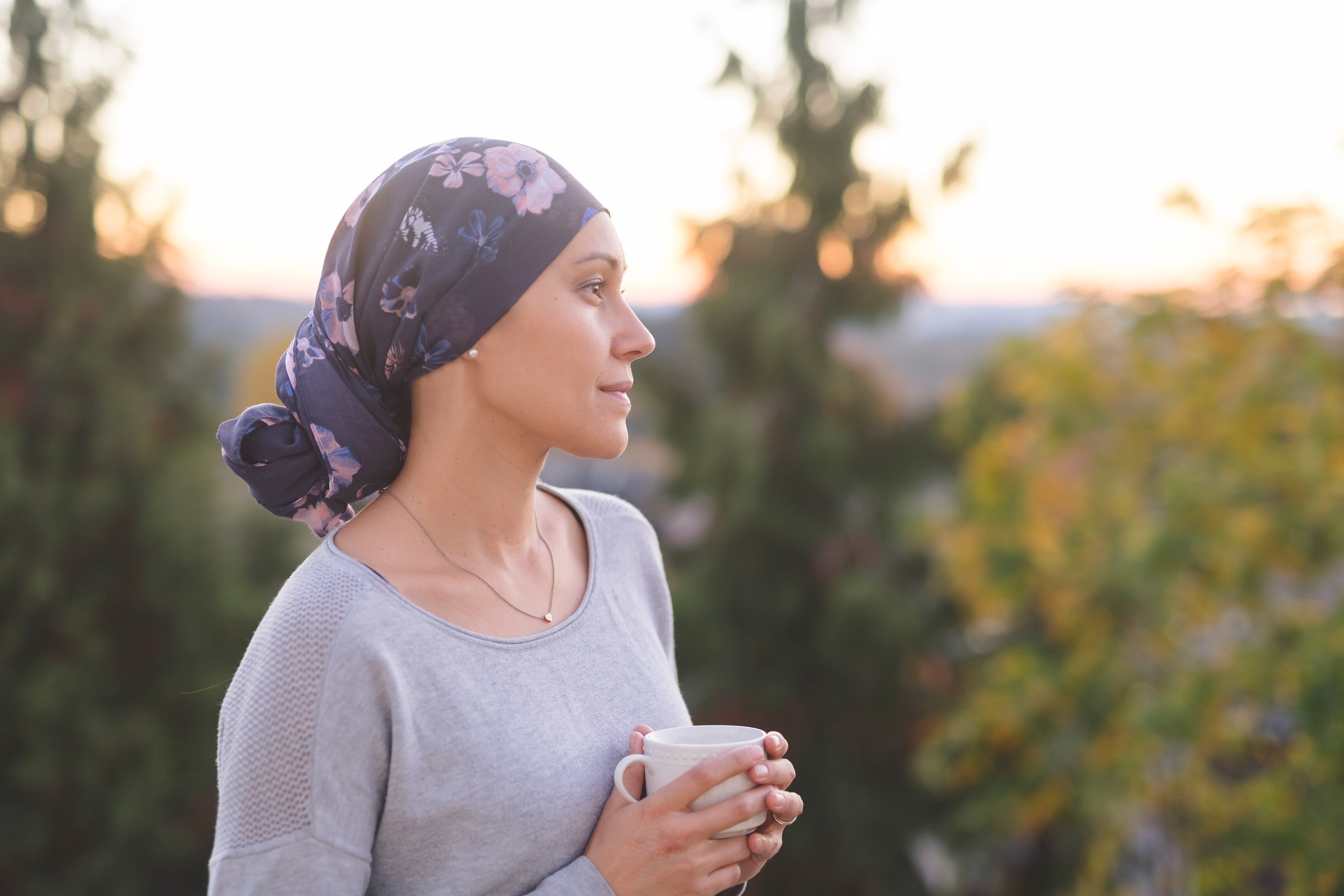Cancer Survivorship: Thriving During Treatment and Beyond
5 min read

There’s no experience in the world quite like getting a cancer diagnosis. It can feel overwhelming, terrifying, confusing, and infuriating all at once. And once you start going through treatment, it’s hard to focus on anything else. So when that treatment ends and you’re suddenly facing your “new normal,” the adjustment can be a challenge. That’s why Rocky Mountain Cancer Centers (RMCC) offers supportive care while you are going through treatment and after it ends, so you can go beyond cancer survivorship to thriving.
Coping With Your Emotions
The emotional toll of cancer treatment can leave mental scars. It’s normal to reflect on how you got here and worry about your cancer returning. You may have career and financial concerns that developed during treatment, but it’s important to pay attention to your mental health and not let anxiety overshadow your recovery. To support your ongoing recovery:
- Eat a healthy diet full of fruits, vegetables, lean protein, and whole grains. Not only can this help prevent further health issues, such as heart disease, but research also shows eating a healthy diet can help support your immune system and improve the way your body reacts to stress.
Check out our nutrition blog filled with delicious, healthy recipes. - Spend time with loved ones doing things you enjoy. Now that treatment is over, getting out of the house for pastimes you put on hold is a good way to help you feel like your old self.
- Go outside. Take a walk, a hike, or sit on a park bench. Fresh air and sunshine can do wonders.
- If you physically can do so, get plenty of exercise – a proven stress release. Exercise increases the flow of oxygen to your muscles, which helps them carry less tension.
- If you are a spiritual person, let your faith guide you. Talking with a trusted pastor or religious leader may help you find peace.
- Keep a journal where you can share all your fears and emotions.
- Talk to a therapist. A professional counselor can help you safely address your concerns and worries and assess whether medications like antidepressants could be useful in your recovery.
- Talk to your family and friends about your emotions and your fears. You don’t have to bottle everything up and “be strong.”
- Talk to your providers about your follow-up care and find out if there are things you can do to lessen the chances of cancer recurring, like quitting smoking.
- Try relaxation techniques, such as meditation or yoga.
- Volunteer for causes you believe in. Giving back to the community is a great way to get out of your head while helping others.
Coping With Physical Changes After Treatment
For many people, cancer treatment will result in physical changes. Some of those changes may be minor, such as scars from surgery or hair loss. But other changes may require major adjustments. Cancer rehabilitation may be helpful for some patients to deal with issues like:
 Balance
Balance- Brain fog (“chemobrain”)
- Fatigue
- Lack of mobility
- Numbness or tingling
- Pain
- Problems swallowing or chewing
- Sexual dysfunction
- Swelling
- Weakness
You may need to work with an occupational therapist, physical therapist, speech pathologist, or another type of therapist to improve your symptoms so you can more fully return to your day-to-day life.
Supportive Care at RMCC
At RMCC, we understand that the best cancer treatment goes beyond simply treating the disease itself. That’s why we provide supportive care services with experienced, licensed oncology-trained clinical social workers to help you and your family manage all the challenges you face. Our multidisciplinary team can help minimize stressors and connect you with additional community resources. We can help you address issues, including:
- Advance care planning
- Career concerns
- Caregiver stress
- Changes in your romantic relationships and sex life
- Emotions, such as feeling overwhelmed
- Financial impacts of treatment
- Home health care possibilities
- Options for palliative and hospice care
- Talking to your children about your diagnosis
- Transportation issues
- Understanding your diagnosis and treatment
Most meetings with our clinical social workers are free of charge. One exception is if you elect to engage in advance care planning visits; you will be billed for that service if you are covered by Anthem Insurance. If you choose this service, you will be responsible for a copay. Services are offered over the phone, in person, or in group settings (which are typically over Zoom).
Don’t Be Afraid to Ask for Help
While it’s normal to feel like you are entirely alone on your cancer journey, remember that you are not alone and that other people are going through what you are – or have been there before. RMCC offers many different types of support groups for both patients and caregivers, including:
 Activating Happiness, a psycho-educational group that aims to help people improve mental and physical health
Activating Happiness, a psycho-educational group that aims to help people improve mental and physical health - Caregivers & Conversation, a support group focused on caregiving
- Coffee & Conversations, a casual bi-monthly meeting to provide supportive care to cancer patients
- Empower Your Recovery, a workshop to help cancer survivors process their emotions
- I’m Done With Treatment, What’s Next, a workshop to learn about follow-up care after completing treatment
- Living Beyond Limits, a support group for patients with advanced or metastatic cancer
- Meditative Walks for the Seasons of Life, a meditative stroll in the Denver Botanic Gardens
- Practicing Mindfulness, a workshop to teach you how to meditate
RMCC also offers nutrition and exercise classes to help you learn how to eat healthy and stay active during and after cancer treatment. This nutritional support can be especially helpful if your team treated you with chemotherapy or radiation. As a result of these medications, you may have developed mouth sores that made eating painful, resulting in a lack of intake of nutrient-rich foods. A nutritional expert can help you design a diet that will refuel your body as you get back to the life that you love.
Led by a clinical exercise physiologist, you will be guided as you do gentle stretching and light exercise routines during RMCC's exercise classes. Our experts can also advise you as you prioritize exercise into your daily life after treatment. This could include taking bike rides or walks, or hitting the gym to lift weights. The key is to find something you enjoy that is sustainable. Start slowly, setting goals to engage in exercise most days of the week and then build on your progress when it comes to the length and intensity of your workouts.
Don’t put off asking for help after your cancer diagnosis. Please download our free booklet with practical tips for cancer survivors and their loved ones.
